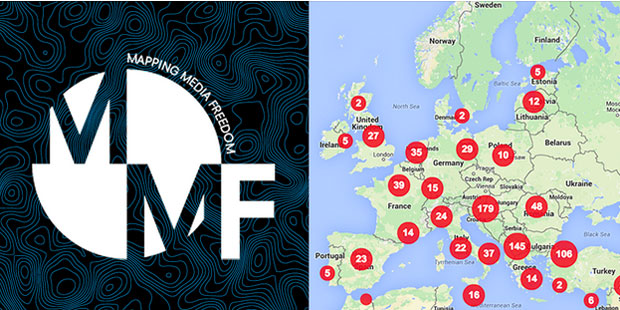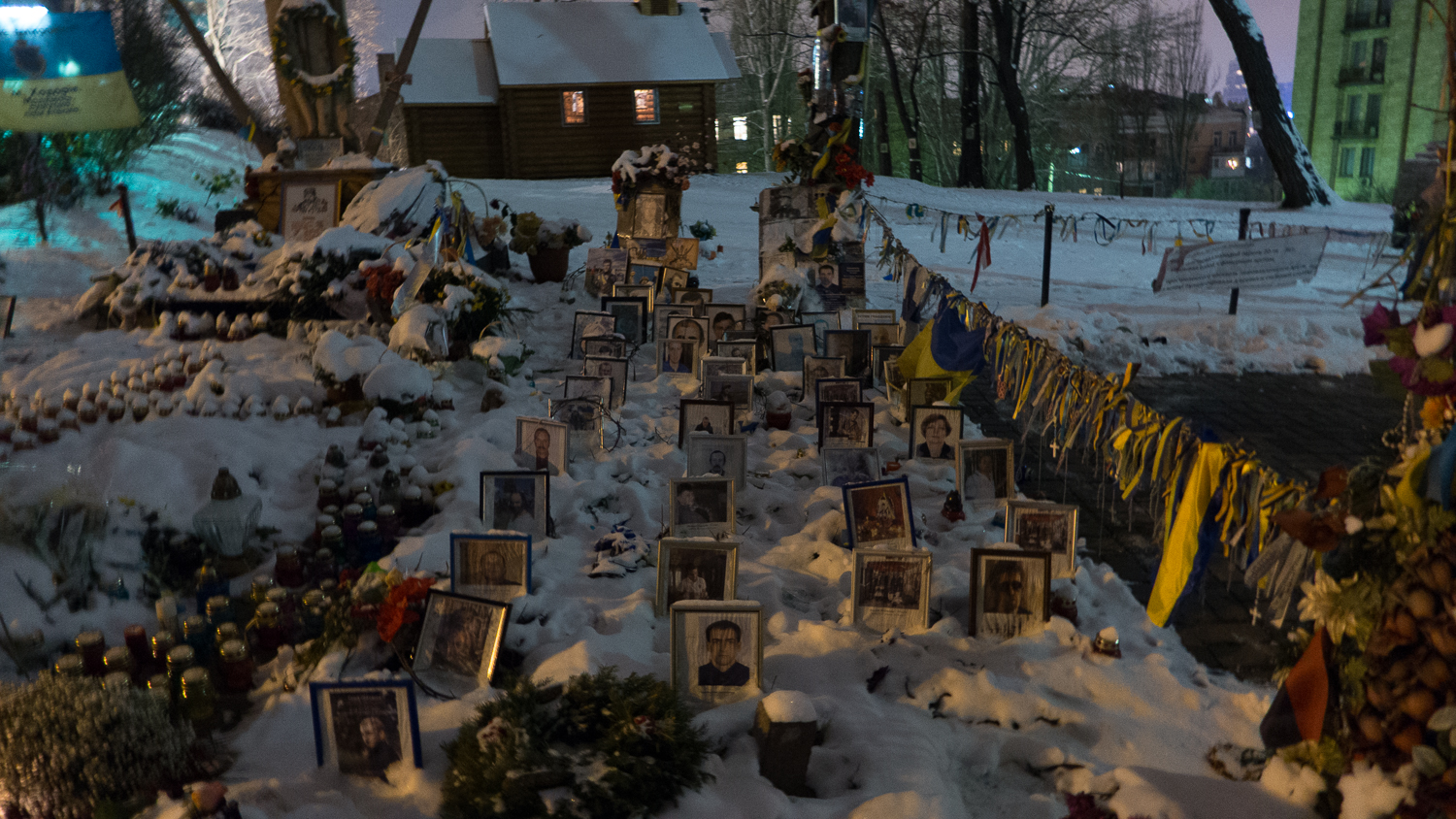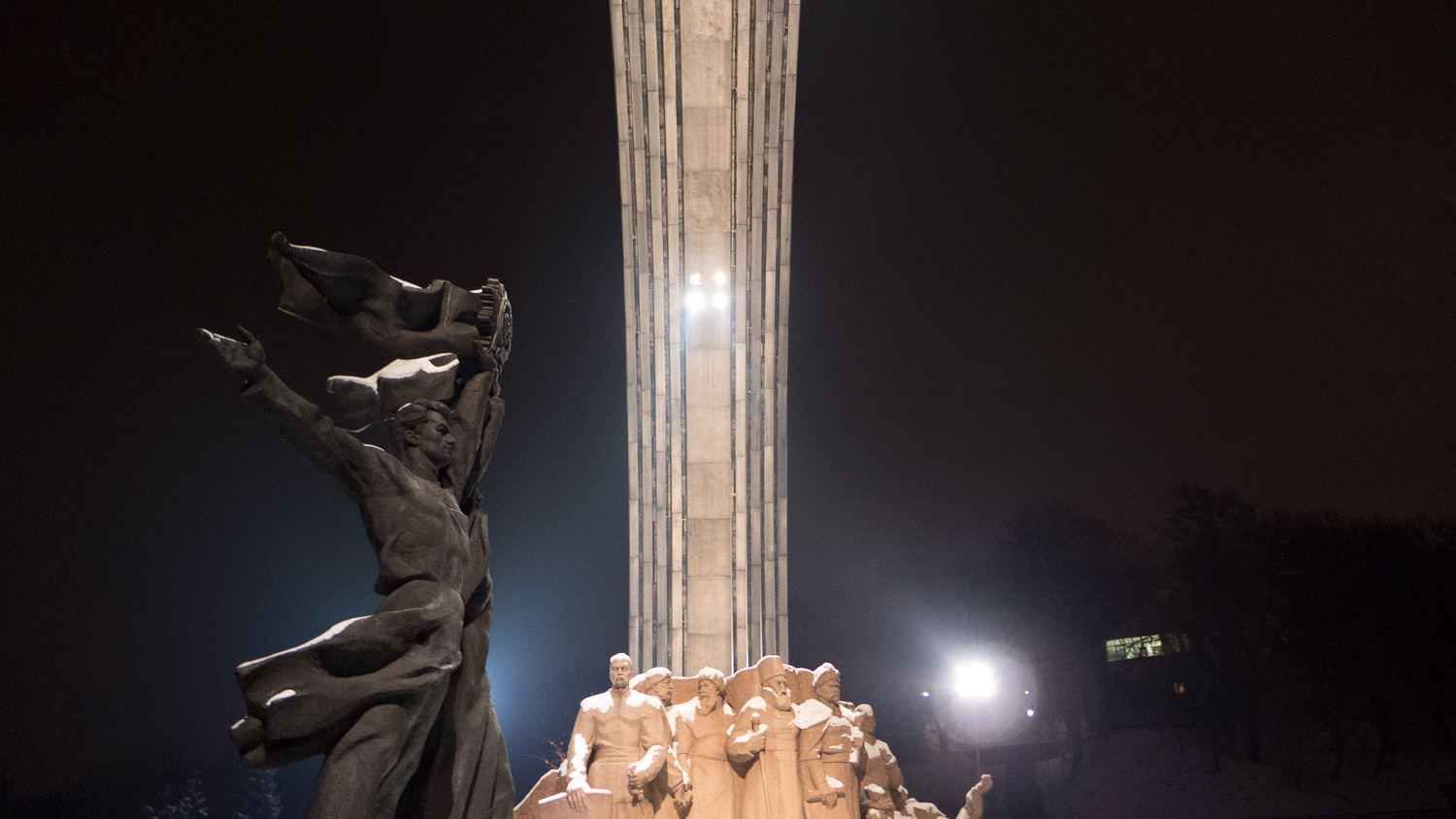17 Sep 2015 | Campaigns, Mapping Media Freedom, mobile, News and features
Ukrainian President Petro Poroshenko signed a decree on Wednesday 16 September banning at least 38 international journalists and bloggers from Ukraine for one year. The decree, published on the presidential website, says those listed are banned for being “actual or potential threat to national interests, national security, sovereignty and territorial integrity of Ukraine.”
Poroshenko said the people targeted were involved in Russia’s 2014 annexation of Crimea and the current aggression in eastern Ukraine.
“This ban is a serious blow to media freedom,” Index senior advocacy officer Melody Patry said. “There is no explanation whatsoever on what press coverage constitutes an actual or potential threat to national security. We appreciate that the situation in eastern Ukraine is sensitive but preventing journalists from reporting from within the country is not the solution and it’s undermining freedom of information.”
The Committee to Protect Journalists reports that the 34 journalists and seven bloggers named in the ban come from Bulgaria, Estonia, Germany, Hungary, Israel, Kazakhstan, Latvia, Macedonia, Moldova, Poland, Russia, Serbia, Slovakia, Spain, Switzerland and the United Kingdom.
The original list included three BBC media staff members – Moscow correspondent Steve Rosenberg, producer Emma Wells and cameraman Anton Chicherov – who were later removed from the ban list, media reported.
“We cannot accept that kind of censorship”, said Mogens Blicher Bjerregård, president of the European Federation of Journalists. Censorship is never the right answer, even to counter propaganda or to sanction journalists who allegedly crossed the Russian-Ukrainian border illegally. The ban is simply inappropriate. Peace and Development of our democracies need press freedom not banning journalists. We and the international society must firmly urge the Ukraine government to lift immediately the ban on named journalists.”
Over 380 people in total have been banned, including activists and Russian officials.
This measure was added to the Mapping Media Freedom platform, which monitors and map threats and violations to media freedom in Europe, including Ukraine and Russia.
The environment for media freedom in Ukraine has been deteriorating against the backdrop of the conflict in the eastern part of the country, making it one the the deadliest countries for journalists, with at least eight media workers killed since the beginning of 2014.
This statement was updated to reflect the later removal of three BBC journalists from the ban list.
Mapping Media Freedom
Click on the bubbles to view reports or double-click to zoom in on specific regions. The full site can be accessed at https://mappingmediafreedom.org/
|
11 Sep 2015 | Mapping Media Freedom, Press Releases

Index on Censorship, die Europäische journalisten föderation und Reporter ohne grenzen freuen sich, die Ausweitung und Neugestaltung von Mapping Media Freedom bekannt zu geben. Das Projekt, das Bedrohungen gegenüber Journalisten innerhalb Europas registriert, schließt nun auch Russland, die Ukraine, sowie Weißrussland mit ein.
Die Karte, die im Mai 2014 erst aufgelegt wurde, dokumentiert Verstöße gegen die Medienfreiheit innerhalb der Europäischen Union und ihren Nachbarländern, einschließlich der Balkanstaaten und der Türkei. Sie erfasst Gewalttaten und Drohungen gegen Reporter, sowie juristische Auseinandersetzungen und Inhaftierungen.
Mehr als 700 Verstöße wurden im ersten Jahr auf der Karte registriert. Somit wurden alltägliche Gefährdungen der Medienfreiheiten aufgedeckt, die zuvor größtenteils unvermerkt und undokumentiert geblieben waren.
“Mapping Media Freedom hat die Art der Gefährdungen klar gekennzeichnet, denen sich Medienorganisationen und deren Mitarbeiter in ganz Europa tagtäglich gegenüber stehen – von geringfügigeren Einschüchterungsversuchen, Gewaltandrohungen, Inhaftierung, bis hin zu Mord. Die Existenz einer detaillierten Datenbank dieser Vorkommnisse – wovon die meisten zuvor unprotokolliert geblieben waren – hilft uns und anderen, Maßnahmen gegen die Täter zu ergreifen”, kommentiert Jodie Ginsberg, Vorsitzende des Index on Censorship.
Die neu aufgelegte Onlineplattform macht es politischen Entscheidungsträgern und Aktivisten leichter, Entwicklungen im Bereich Medienfreiheit zu erkennen und auf diese prompt zu reagieren, mit sofortiger Unterstützung oder einer konkreten Themenkampagne. Darüber hinaus bietet die Plattform gefährdeten Journalisten unterstützende Maßnahmen wie Rechtsberatung oder Schulungen im Bereich digitale Sicherheit. Jeder kann eigene Berichte auf der Seite einreichen, die anschliessend von der Projektleitung verifiziert werden.
“Zu einer Zeit, in der sich die Informationsfreiheit Gefährdungen gegenübersteht, die es seit den Zeiten der Sowjetunion nicht mehr gegeben hatte, ist es essentiell geworden, Journalisten und Blogger zu unterstützten. Während ein Teil des Kontinents in Autoritarismus abdriftet, ist Onlineüberwachung zu einer gemeinsamen Herausforderung geworden”, kommentiert Lucie Morillon, Programmdirektor der ROG.
Infolge von erneuter Finanzierung durch die Europäische Kommission enthält die Karte nun neue Funktionen, einschliesslich der Filterfunktion für einzelne Länder, sowie eine verbesserte Suchanfrage. Das Projekt hat darüber hinaus zum Ziel, neue Bündnisse zwischen Journalisten im ganzen Kontinent zu fördern, im besonderen zwischen jungen Medienarbeitern, die Hilfsquellen und eingehende Berichterstattung auf der Seite “Free Our Media!” nutzen können.
Als Antwort auf neue, drakonische Maßnahmen und Gewalt in der Region deckt sich die Neuauflage mit einer Ausdehnung nach Russland, die Ukraine und Weissrussland. Alle neuen Berichte aus den Gebieten werden auf englischer, sowie der Regionalsprache verfügbar sein.
“Die Ausweitung unserer Dokumentationssarbeit auf die Ukraine, Russland und Weißrussland bedeutet gute Neuigkeiten für Journalisten und Mitarbeiter von Medienorganisationen in der Region. Journalisten stehen üblicherweise im Mittelpunkt von Demonstrationen, bei denen es zu Ausschreitungen kommt, sowie von Zusammenstößen, bewaffneten Konflikten, wo die Gefahr besteht angeschossen, angegriffen, entführt, inhaftiert misshandelt oder sogar getötet zu werden. Berufsbedingte Schwierigkeiten für Journalisten bedeuten, dass sie zum leicht Ziel von Propagaaktivitäten werden können. Dank der Partnerorganisationen wird der EFJ weiterhin alle Verstöße gegen Medien dokumentieren und ein Bewusstsein dafür fördern, Starflosigkeit bei diesen Verstößen zu beenden” kommentierte Mogens Blicher Bjerregård, Vorsitzender des EFJ.
Länderkorrespondenten und Projektpartner – einschliesslich des Human Rights House Ukraine,der Media Legal Defence Initiative und der European Youth Press – werden zusammenarbeiten, um sicher zu stellen, dass Gefährdungen der Medienfreiheit in der Region klar gekennzeichnet und konfrontiert werden.
Der Ansprechpartner für weitere Informationen ist Hannah Machlin, Projektleitung [email protected], +44 (0)207 260 2671
Mapping Media Freedom
Click on the bubbles to view reports or double-click to zoom in on specific regions. The full site can be accessed at https://mappingmediafreedom.org/
|
11 Sep 2015 | Campaigns, Mapping Media Freedom, mobile, Press Releases

Index on Censorship, the European Federation of Journalists and Reporters Without Borders are delighted to announce the expansion and redesign of Mapping Media Freedom, which records threats to journalists across Europe, and which will now also cover Russia, Ukraine and Belarus.
First launched in May 2014, the map documents media freedom violations throughout the European Union and neighbouring countries including the Balkans and Turkey.
More than 700 reports were logged on the map in its first year, lifting the lid on the everyday threats to media freedom that have previously gone largely unreported or undocumented.
“Mapping Media Freedom has highlighted the kinds of threats faced by media organisations and their staff everyday throughout Europe — from low-level intimidation to threats of violence, imprisonment, and even murder. Having a detailed database of these incidents – most of which previously went unreported — helps us and others to take action against the culprits,” said Index on Censorship CEO Jodie Ginsberg.
The relaunched online platform will make it easier for policy makers and activists to identify trends in media freedom and to respond efficiently with immediate assistance or to campaign on specific issues. It also provides support such as legal advice and digital security training to journalists at risk. Anyone can submit their own reports to the site for verification by project officers.
“At a time when freedom of information is facing threats not seen since the times of the Soviet Union, supporting journalists and bloggers is crucial. While part of the continent is sinking in an authoritarian drift, online surveillance has become a common challenge”, said RSF Programme Director Lucie Morillon.
Following renewed funding from the European Commission earlier this year, the crowd-sourced map incorporates new features including country filters and an improved search facility. The project also aims to forge new alliances among journalists across the continent, especially young media practitioners who will find useful resources and in depth coverage on a dedicated “Free Our Media!” page.
In reaction to new draconian measures and violence in the region, the new design coincides with an expansion into Russia, Ukraine and Belarus. All new reports from this area will be available in English and the regional language.
“The enlargement of the monitoring process to Ukraine, Russia and Belarus is good news for journalists and media workers in the region. Journalists are usually at the heart of violent demonstrations, clashes and armed conflicts where they may be shot, assaulted, kidnapped, arrested, abused and killed. They are facing difficult professional challenges between extremists or propaganda agents. Thanks to its affiliates, the EFJ will continue to document all media violations and raise awareness to end impunity when violations occur”, said Mogens Blicher Bjerregård, EFJ President.
Partners, country correspondents and affiliates to the project — including Human Rights House Ukraine, Media Legal Defence Initiative and European Youth Press — will work together to ensure the growing threats to media freedom in the region are highlighted, and tackled.
For further information please contact Hannah Machlin, project officer,[email protected], +44 (0)207 260 2671
Mapping Media Freedom
Click on the bubbles to view reports or double-click to zoom in on specific regions. The full site can be accessed at https://mappingmediafreedom.org/
|
18 Dec 2014 | Magazine, News and features, Volume 43.04 Winter 2014

A makeshift shrine remembers the Ukrainians killed during protests on Maidan Nezalezhnosti. (Photo: Sean Gallagher / Index on Censorship)
“There is no civil war in Ukraine. It is a war between Russia and Ukraine, and it is inspired by heavy Russian propaganda,” says Volodymyr Parasyuk as we sit in a café on the main square of the regional capital Lviv in western Ukraine.
This year Parasyuk became a national hero in his country. Some say he changed history when he made a passionate speech on Maidan Nezalezhnosti in Kiev on 21 February 2014, after the police killed about 100 protesters. Parasyuk, head of a sotnia, a unit of 100 men, and part of the protesters’ defence force, demanded President Yanukovich resign and said otherwise protesters would launch an armed attack. The next day the head of state fled the country, and there was a new government formed in Ukraine.
Parasyuk knows what he is saying about war. He joined a voluntary battalion of Ukrainian forces and fought separatists in the east of his country during the summer and autumn. He was wounded and spent a couple of days in detention, but managed to escape.
“This is direct aggression by the Kremlin against my country. This war is completely directed from Russia. We do not have internal reasons to fight each other, the conflict is provoked by lies and propaganda that come from the east,” says Parasyuk.

Statues near Maidan Nezalezhnosti celebrate the friendship between Russia and the Ukraine. (Photo: Sean Gallagher / Index on Censorship)
To read the full article, subscribe to Index on Censorship magazine or download the app, get 25% off print orders until 31 Dec 2014.
This excerpt was posted on 18 December 2014 at indexoncensorship.org



